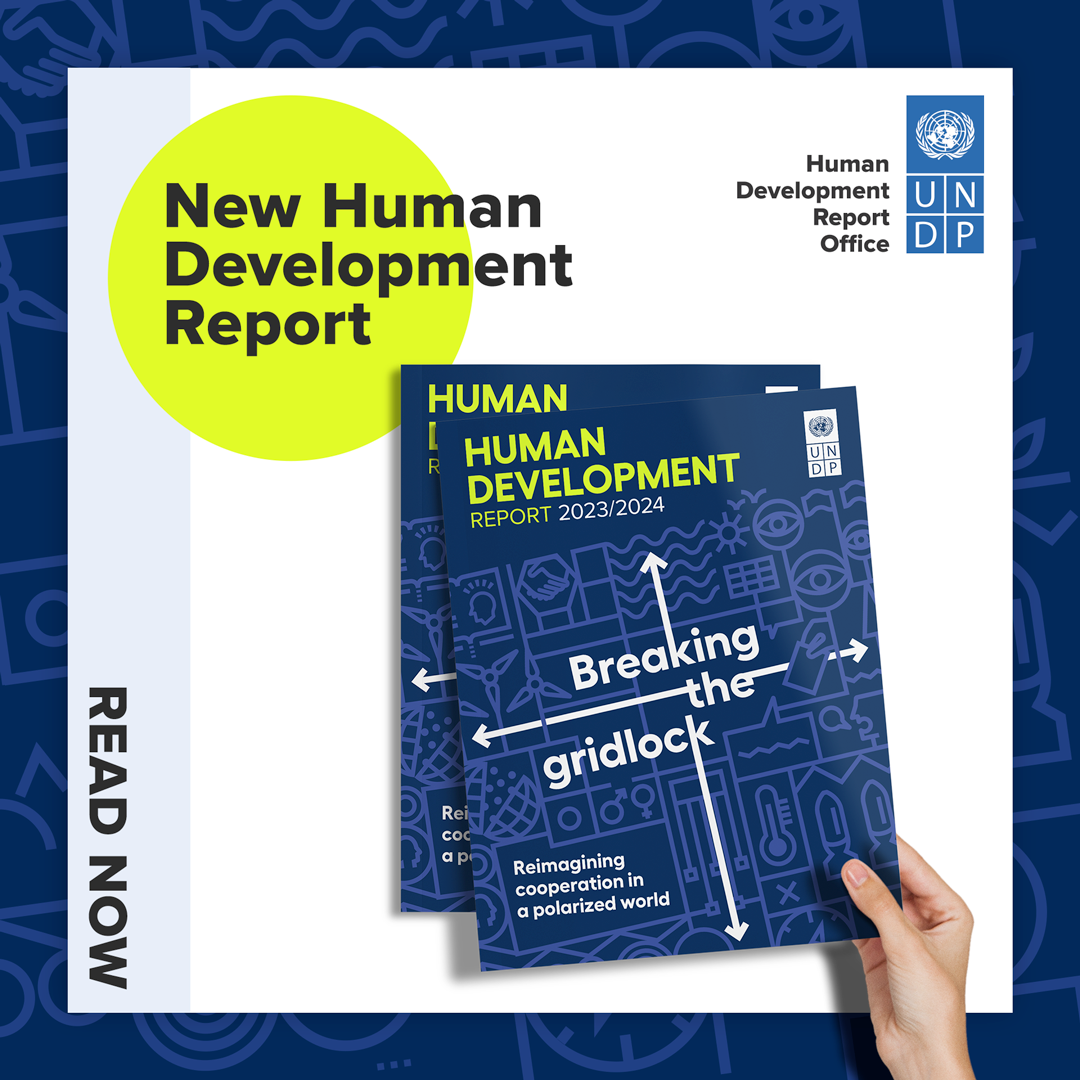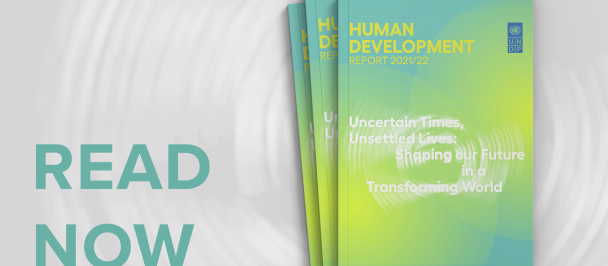2023/2024 Human Development Report: Rich countries attain record human development, but half of the poorest have gone backwards
Montenegro among countries with very high development
March 14, 2024

New York/Podgorica, 14 March 2024 – According to the latest Human Development Report, published by the United Nations Development Programme (UNDP), Montenegro maintains its position among the category of countries with very high human development, for the seventh year in a row.
The Human Development Index (HDI) is a summary measure for assessing long-term progress in three basic dimensions of human development: a long and healthy life, access to knowledge and a decent standard of living. With the HDI value of 0.844, Montenegro ranks 50 out of 193 countries and territories.
The top of the ladder is held by Switzerland, while the top ten include: Norway, Iceland, Hong Kong (China), Denmark, Sweden, Germany, Ireland, Singapore and Australia. On the other hand, the lowest HDI scores were recorded in Central African Republic, South Sudan and Somalia.
Out of the regional countries in this category, apart from Montenegro there is Slovenia (22), Croatia (39) and Serbia (65). All other countries of the region are in the high human development category: Albania (74), Bosnia and Herzegovina (80), North Macedonia (83).
Between 2003 and 2022, the HDI value in Montenegro has been increased from 0.749 to 0.844, which represents a jump of 12,7%. According to the latest HDR, life expectancy in Montenegro is 76,8, which is 2,8 years more than in 2003. Citizens of Montenegro have an average of 12,6 years of education, or 2,2 years more than in 2003. The gross national income per capita (GNI - purchasing power parity expressed in US dollars) has increased by around 65,4% and amounts to 22,513 in 2022.
The inequality adjusted HDI (IHDI) takes into account inequalities in all three HDI dimensions by “discounting” the average value of each measure according to its level of inequality. The “loss” in human development due to inequality is represented by the difference between HDI and IHDI and amounts to 10.4%.
The 2023/24 Human Development Report (HDR), titled “Breaking the Gridlock: Reimagining cooperation in a polarized world", reveals a troubling trend: the rebound in the global Human Development Index (HDI) – a summary measure reflecting a country’s Gross National Income (GNI) per capita, education, and life expectancy – has been partial, incomplete, and unequal. The HDI is projected to reach record highs in 2023 after steep declines during 2020 and 2021. But this progress is deeply uneven. Rich countries are experiencing record-high levels of human development while half of the world’s poorest countries remain below their pre-crisis level of progress. Global inequalities are compounded by substantial economic concentration. As referenced in the report, almost 40 percent of global trade in goods is concentrated in three or fewer countries; and in 2021 the market capitalization of each of the three largest tech companies in the world surpassed the Gross Domestic Product (GDP) of more than 90 percent of countries that year.
“The widening human development gap revealed by the report shows that the two-decade trend of steadily reducing inequalities between wealthy and poor nations is now in reverse. Despite our deeply interconnected global societies, we are falling short. We must leverage our interdependence as well as our capacities to address our shared and existential challenges and ensure people’s aspirations are met,” said Achim Steiner, head of the UN Development Programme. “This gridlock carries a significant human toll. The failure of collective action to advance action on climate change, digitalization or poverty and inequality not only hinders human development but also worsens polarization and further erodes trust in people and institutions worldwide.”
While the status of women’s rights reflects the essential civilizational progress of a society and gender differences are among deepest forms of inequality, the balance of progress in human development between men and women is measured by the Gender Development Index (GDI) and the Gender Inequality Index (GII).
The GDI represents the ratio between female and male HDI, and measures gender differences in three basic dimensions of human development. The value of female HDI for 2022 for Montenegro is 0.833 compared to 0.852, the value of HDI for men.
Women in Montenegro on average live 80,3 years, while men live 73,5 years. Data shows that women in Montenegro spend an average of 12,1 years in education compared to men who spend 13,2 years in education.
Regarding the value of the GII, which measures gender inequalities in three dimensions (reproductive health, empowerment and participation in the labor market), Montenegro is in 33rd place out of 166 countries in 2022.
The report states that in 2022, women held 27,2% of parliamentary seats. 70,8% of women aged 25 and older have at least completed secondary education compared to 83,7% of men. The adolescent birth rate is 9., births per 1000 women aged 15-19 years. Women’s participation in the labor market is 44,4%, while for men, it is 57,8%.
UNDP Resident Representative Ekaterina Paniklova, noted that Montenegro, when it comes to HDI, marks growth and remains in the category of very highly developed countries. She emphasized the importance of maintaining focus on green and sustainable develospment, social protection, strengthening institutions, achieving gender equality, as well as promoting innovation, through carefully crafted policies and strategies.
“In an era characterized by escalating polarization and division, it is imperative not to overlook the importance of investing in one another, as doing so poses a threat to both our collective wellbeing and security. The challenges we confront, from pandemic prevention to climate change and digital regulation, are deeply interconnected. It is evident that our problems necessitate interconnected solutions. Deglobalization is not realistic in today’s world, where economic interdependence remains substantial. This underscores the vital role of multilateralism, as highlighted in the report, as bilateral engagements fall short in addressing the global nature of providing public goods”, Paniklova noted.
The report argues that advancing international collective action is hindered by an emerging ‘democracy paradox’: while 9 in 10 people worldwide endorse democracy, over half of global survey respondents express support for leaders that may undermine it by bypassing fundamental rules of the democratic process, as per data analysed in the report. Half of people surveyed worldwide report having no or limited control over their lives, and over two-thirds believe they have little influence on their government’s decisions.
Political polarization is also a growing concern with global repercussions. Along with a sense of powerlessness, report authors say, it is fuelling inward-turning policy approaches – starkly at odds with the global cooperation needed to address urgent issues like the decarbonization of our economies, misuse of digital technologies, and conflict. This is particularly alarming in light of 2023's record-breaking temperatures, which emphasize the immediate need for united action to tackle the climate crisis, or in the advent of artificial intelligence as a new and fast-evolving technological frontier with little or no regulatory guard rails.
Human Development Report is available here.
Global press release is available here.

 Locations
Locations